THE VOTER
Meet the people, hear their dreams, ask why they are voting
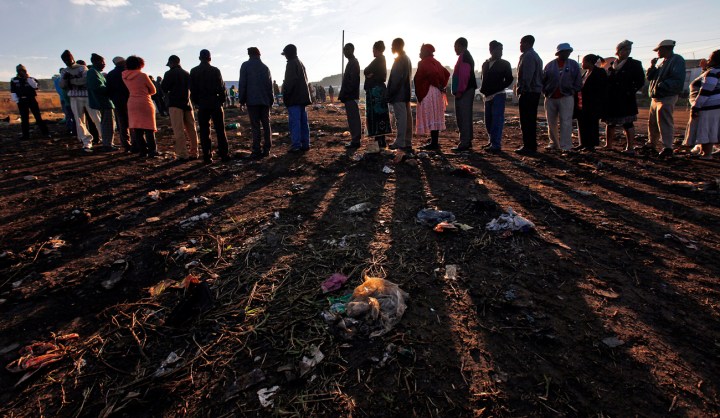
We feel there’s way too much emphasis on politicians in the coverage of the election campaign, so we are shifting the focus on the people who matter: the voters, the citizens who, on 8 May will make their crosses and elect the political parties to make life a little easier or in trust that a small dream or two may come true.
Thembekile Mzobe (71)

At 71 years old, Thembekile Mzobe is an active gogo. She was coming from a meeting at the Durban City Hall when we meet her at the abutting gardens that are summer verdant and loud with bird song on the Monday morning we head out. Twice a month, the Amandla Badala sports association meets in the grand old colonial buildings of the City Hall.
The grannies group plan their soccer matches, ballroom dancing and other activities. The Voter series does not ask people who they will vote for, but Mzobe is wearing yellow and green, so you get the picture. What is her big issue?
“Many children don’t finish school,” she says, telling us the story of a bright young woman in her area who got good marks but who lost her parents and dropped out.
“Who knows, she might be a President,” says Mzobe who is the old-style community activist who keep things together when the state doesn’t. Of matriarchal bearing, you can tell she’s busy by the lanyard around her neck and the bag full of documents.
“Gogos support the children. From the pensions, they support the orphans.” She also supports her grandchildren, although they are not orphans. “My son is not working, but the mother is working,” she says.
If elections are about hope, then Mzobe’s wish is a small one. The old-age pension that buoys many parts of South Africa should go up. A little.
“We need a little bit of money on top of the money we are getting. And maybe a year-end bonus.”
In February, Finance Minister Tito Mboweni increased the old age pension by 5% to just over R1,800 a month.
Nontobeko Mncwabe (22)
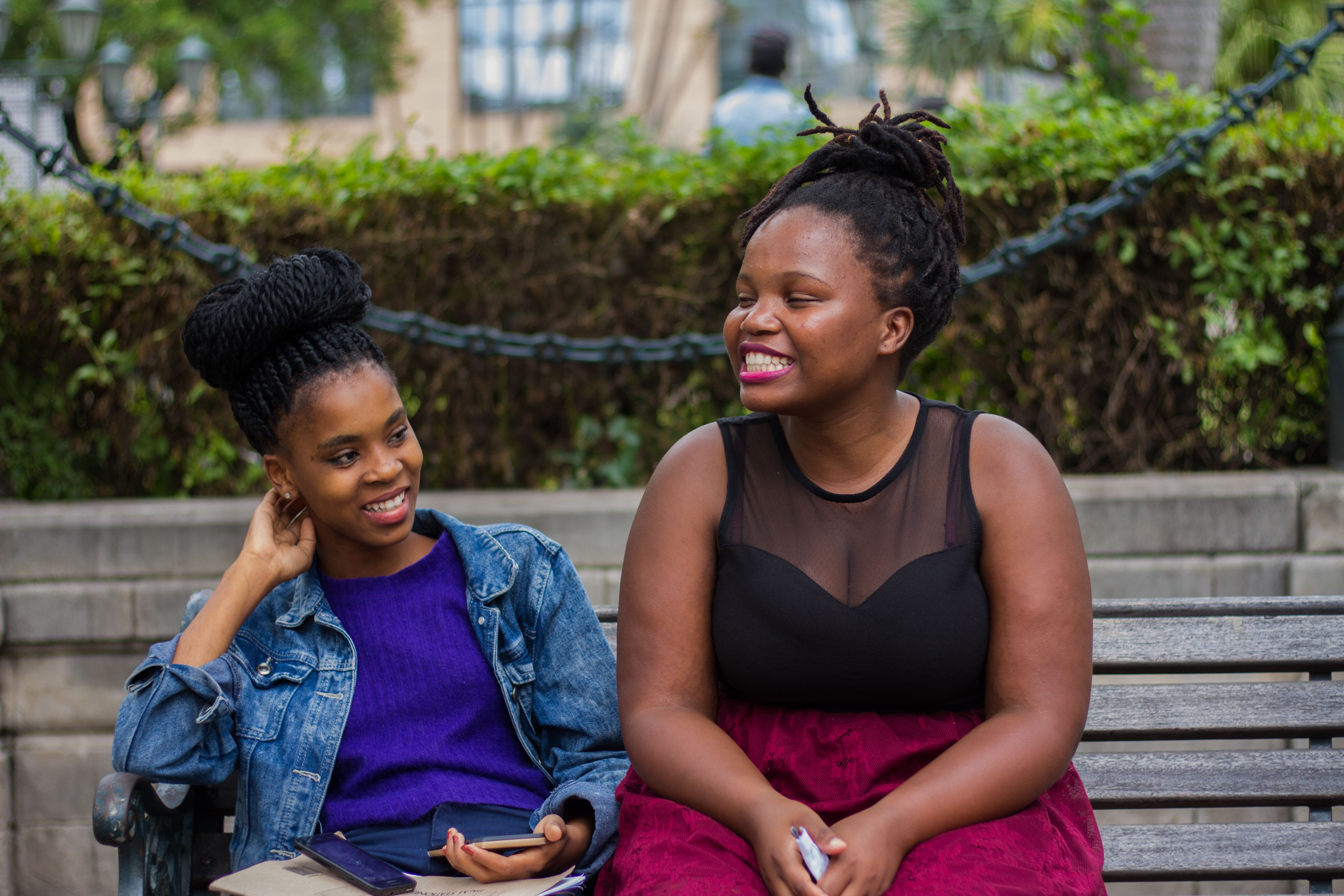
Nontobeko Mncwabe and her friend (who declined to give Daily Maverick her name) are that coveted demographic – the first-time voters. Party of the army of style that makes South African cities such a showing of fashionistas, the two keep their phones handy all the time.
When we meet, it’s about 11am on a Monday morning and the park and walkway outside the Durban city hall is filled with young people like them, signalling that they are part of another army. And that is the army of three million young people who are locked out of the job market which has been further straitjacketed by a decade of low growth. With the private sector largely cauterised as a place of work for newcomers, the government is the only source of jobs for young job-seekers like Mncwabe.
“I just completed my degree in marketing and business relations. In most places, they want experience, even with (applications for) internships. Right now, that is the most important thing to me. It’s how we live. How the environment is. I think the government is not fair. To get a job, you have to pay a bribe. You only get a job if you know someone. People (who employ) take their relations or friends. I don’t know anyone (in government). I will vote. I don’t know why it’s important, but I will vote.”
Mncwabe has big dreams.
“Next year, I want to be working. I want to have my own car. And I want to start a business.”
Her dad’s an estate agent and he has instilled a sense of its potential in his daughter.
“I want to be in property. I want to have a lodge. I want to own a B&B.”
Sagren Pillay (57)
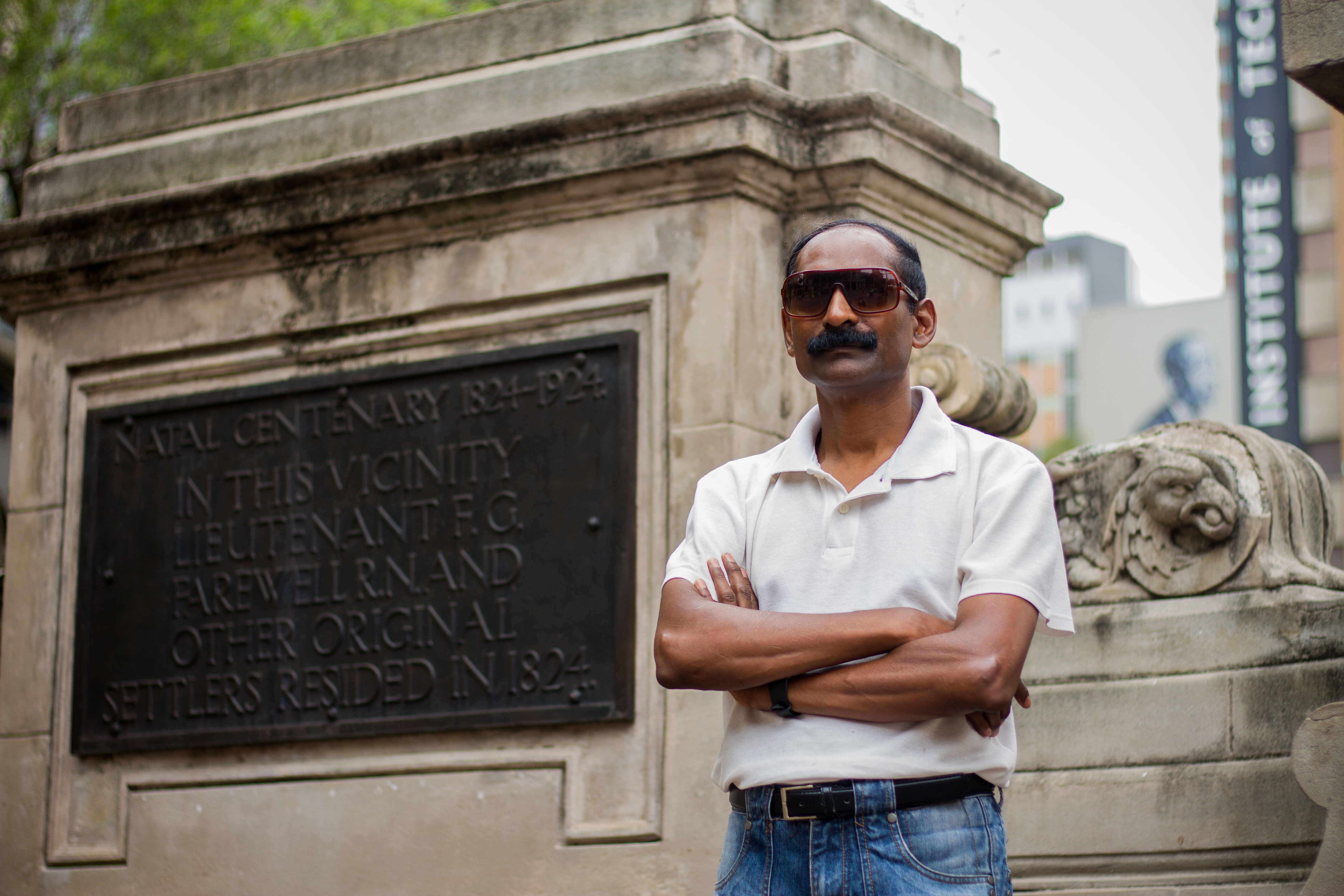
Sagren Pillay’s body language says everything. He holds his arms crossed tight over his chest. His sunglasses form a second shield as he observes his surroundings with vigilance.
He is hesitant to speak when approached, but he does because Durban people are friendly that way. What is his big issue?
“Firstly, the crime.”
He has thrice been a victim of crime which explains a lot of how he presents himself to the world. He lives in Mayville, Johannesburg. He has experienced home invasions.
“My car’s been stolen twice,” he says. “I think it’s important to vote.”
An electrician, he says that safety lies in solitude.
“To keep myself safe, I keep to myself. I distance myself from certain places. If it’s safe to be at a certain place, that is where I will be.”
Carl Erasmus (52)
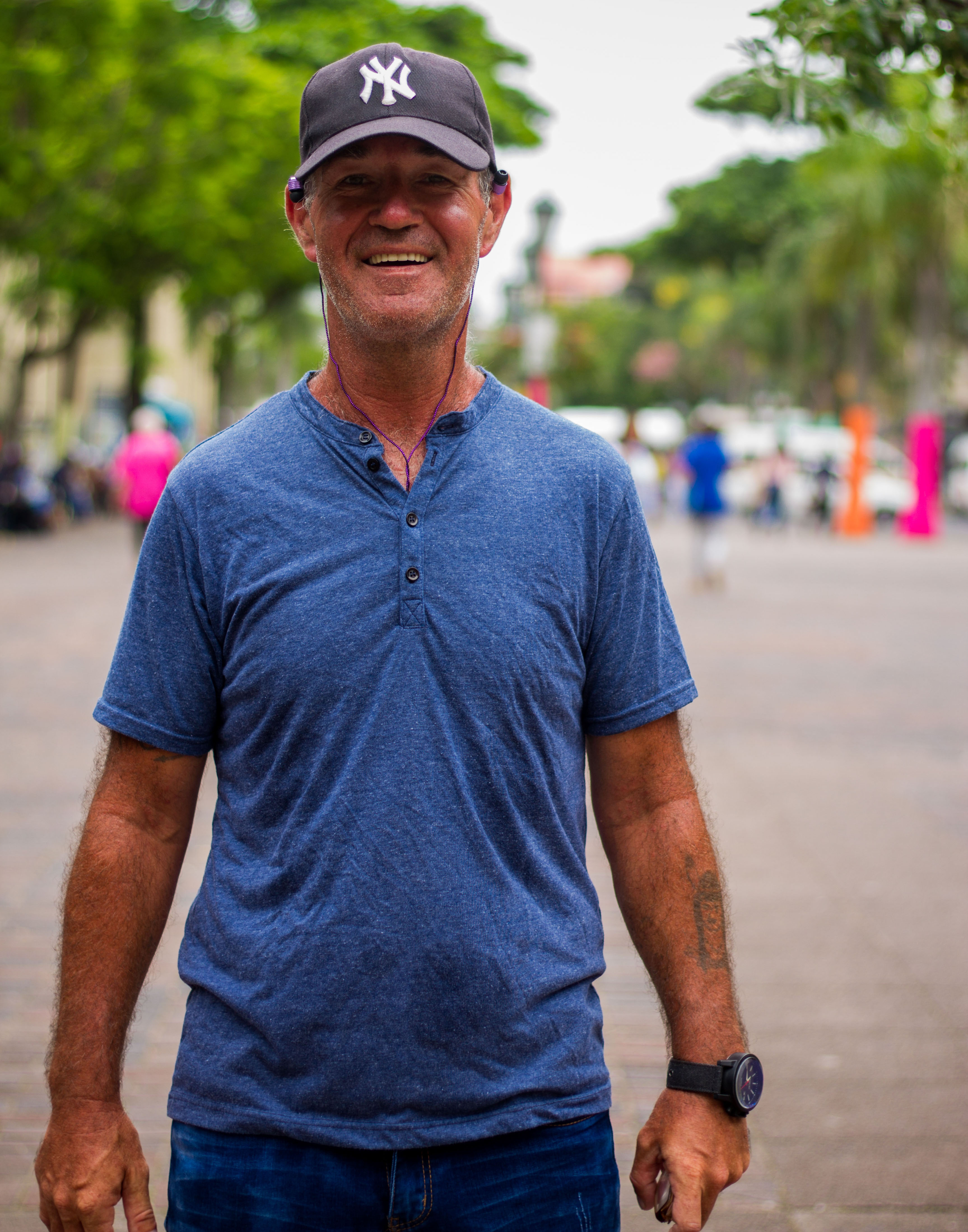
The tattoo on his arm, his sun-beaten skin and the bump of the inner-city cleva almost tells Erasmus’s story before he starts speaking. He lives in a shelter on Durban’s South Beach and had been there for a month when Daily Maverick spoke to him earlier this year. He and his partner had been renting a room, but got turfed out when the block became student digs.
Erasmus is a part-time informer for Crime Intelligence in the city and he infiltrates syndicates, he says. Erasmus will vote. While KwaZulu-Natal and Durban generally vote for continuity, not change:
“On top of my mind is change. So many things are promised, but the promises are not kept. My biggest dream is to be happy.”
Mandla Mtolo (29)
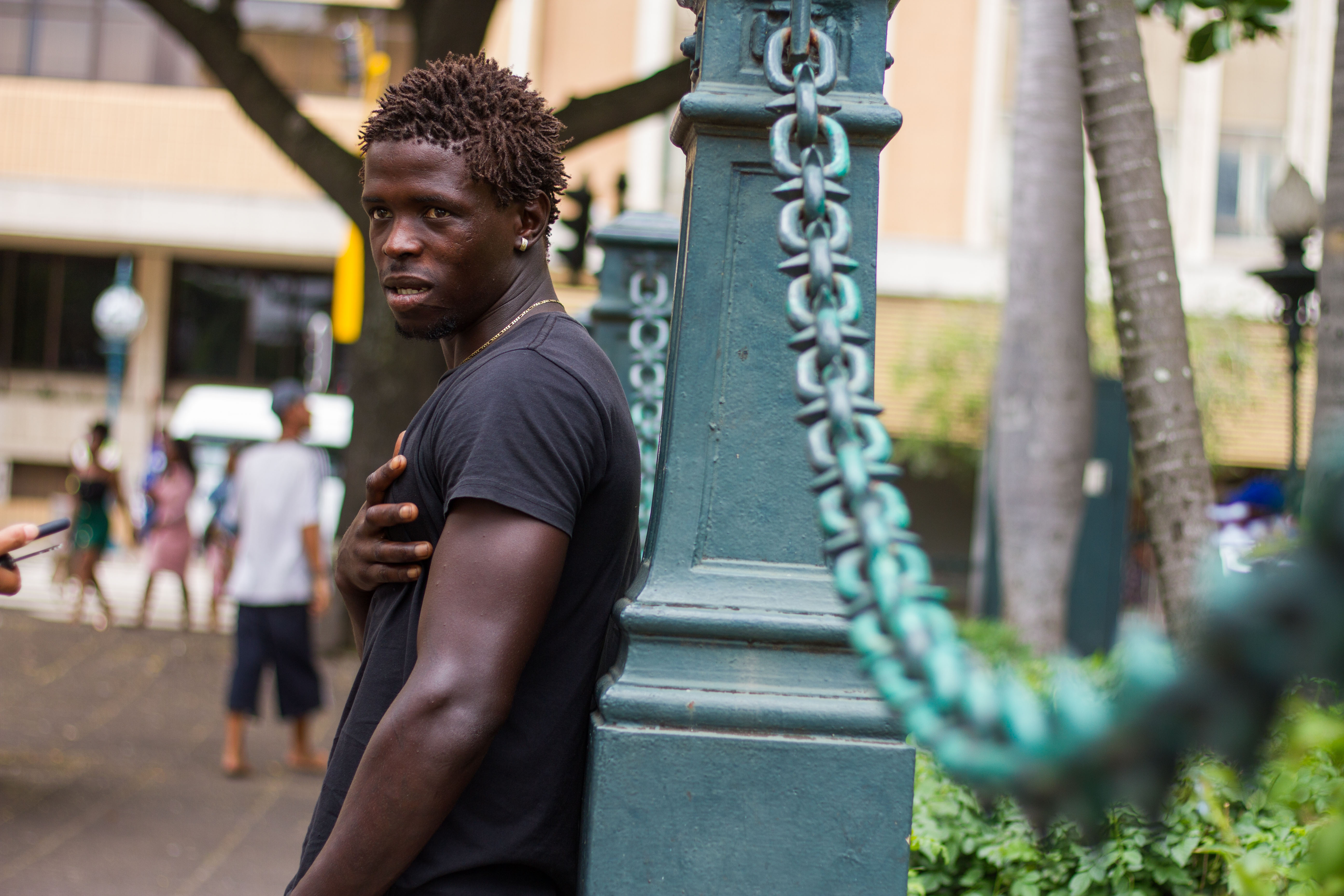
It’s difficult to find people who will stop and talk to journalists but not with Mandla Mtolo. He approaches Daily Maverick. Dressed in black with highlighted dreads, Mtolo looks like the street mayor of Durban’s streets with his cock-sure manner and open style. His accent is the classic Cape Town lilt but Durban’s inner-city is home. Mtolo says he works repairing doors in the high-rises in Durban’s charming but ageing city centre but when we meet, he’s working the park.
He stopped drugging three months before we met, says Mtolo, and now he wants to get others off the drugs too.
“My big dream is to minister and help (other drug users). I won’t vote to get money but to make a change on the streets.”
Mbali Nkomo (25)
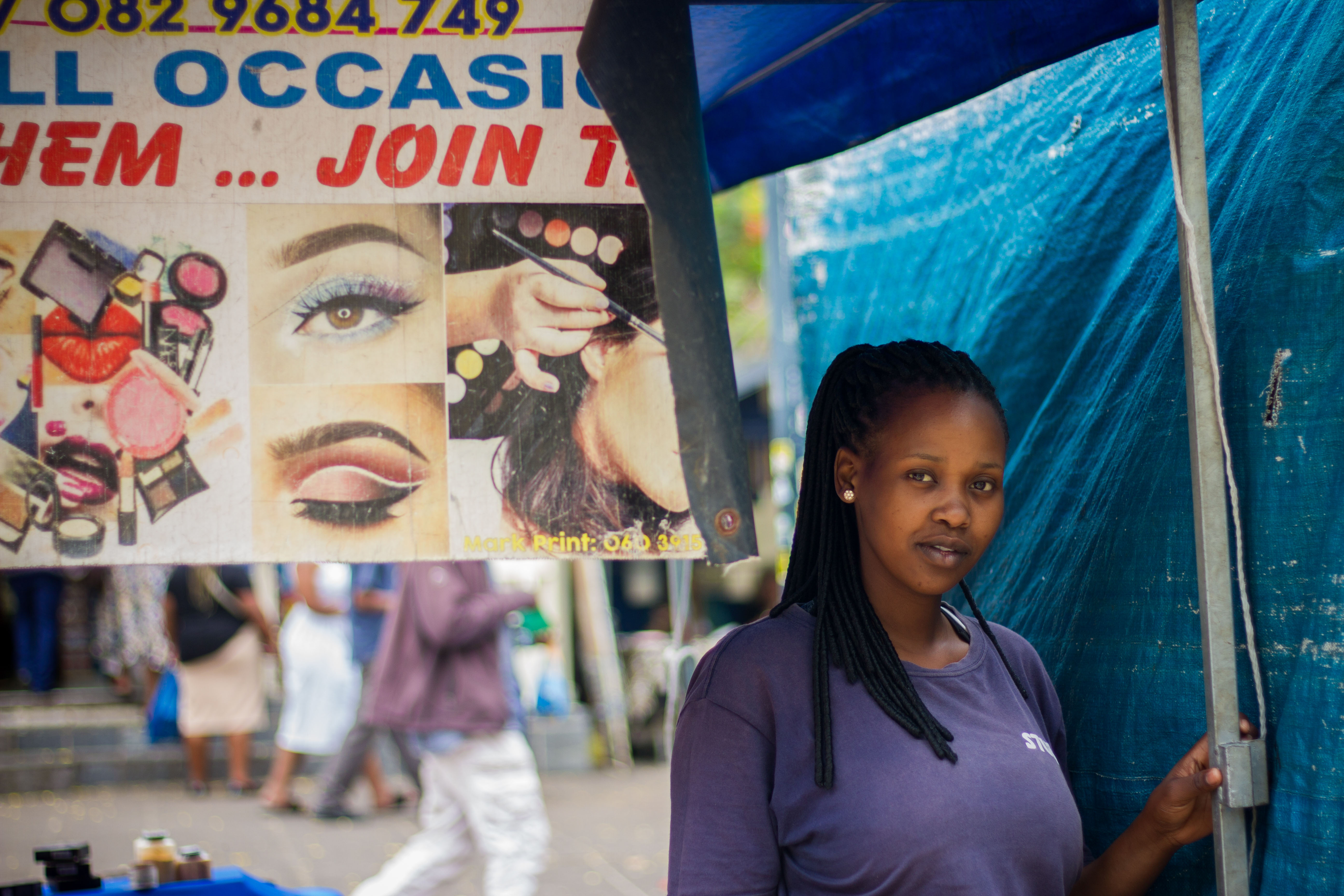
Mbali Nkomo runs a street make-up stall where commuters can have their faces done for between R100 and R200. South Africa’s big city streets are often like fashion ramps and make-up is big business.
Her street-tent stall is quiet on the Monday we meet and Mbali says she earns R700 per week selling and doing make up. She and the two other stall assistants are perfectly made up and show me their skills – like contouring and colouring and highlighting. Bubbly and gregarious, the three women shout at passers-by and chat to fellow stall-holders.
“People like beauty for things like graduation,” says Nkomo whose big dream is to open her own make-up business. “And to have my own house.”
Nkomo lives in a rented room with her two children, aged three years and the other just two months old.
“I am gonna vote. It’s exciting,” she says before shooing us away to make way for a customer who wants to book contouring. DM

















 Become an Insider
Become an Insider